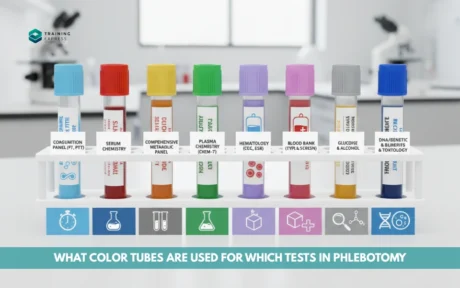

Welcome to our blog on healthcare waste management! Healthcare waste is an inevitable by-product of the medical industry, and it can come in various forms. From hazardous materials to biohazardous waste, it’s important to know how to properly dispose of these types of waste to protect the environment and prevent any potential health risks. In this blog post, we will explore the eight types of healthcare waste and provide practical advice on how to dispose of them safely and efficiently.
However, with the increasing awareness of the impact of waste on the environment, it is crucial for healthcare providers to adopt efficient and safe waste management practices. Additionally, healthcare practices must follow the guidance of Healthcare Technical Memorandum 07-01: secure management of healthcare waste.
Implementing proper waste management practices in healthcare facilities can reduce their ecological footprint. Also, it can promote the well-being of their patients, staff, and surrounding communities.
By the end of this article, you’ll have a better understanding of the different types of healthcare waste and how to manage them responsibly, whether you’re a healthcare worker or just someone looking to make a positive impact on the world. So let’s dive in and learn more about this important topic!
What is Healthcare Waste?
According to the World Health Organization (WHO), medical waste is produced due to healthcare activities. In addition, healthcare facilities generate a wide range of waste, such as medical devices, sharps, drugs, laboratory materials, and human tissue. The term “medical waste” covers a diverse array of waste types produced in healthcare settings. Therefore, it is crucial to implement appropriate waste management practices to reduce the hazards associated with handling this waste.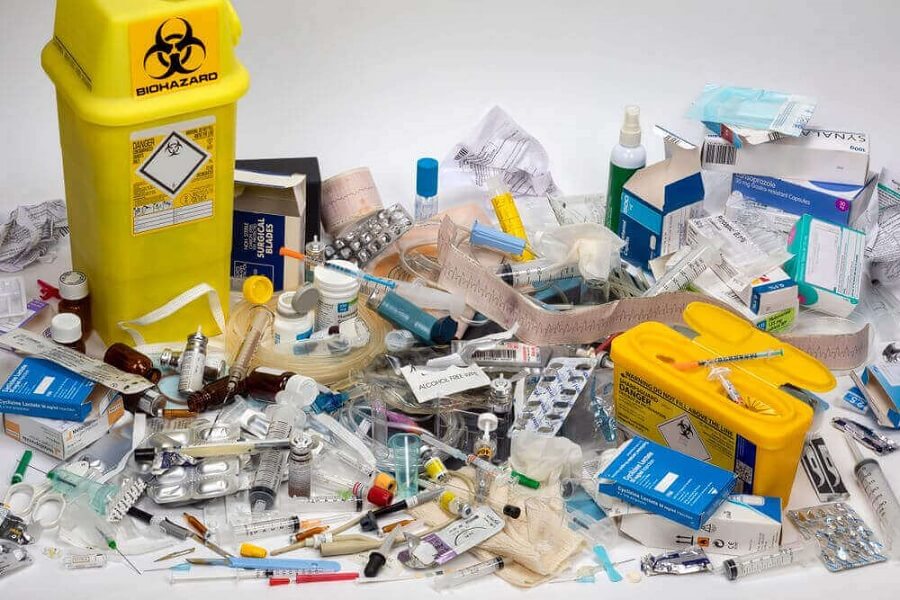
Importance of Health Care Waste Management
Proper healthcare waste management is vital to protect public health by
- preventing the spread of infectious agents,
- reducing environmental impact,
- complying with regulations,
- and promoting resource efficiency.
Also, healthcare workers who handle and dispose of waste materials are at risk of exposure to pathogens and other hazardous substances, which can result in injuries, illnesses, and even fatalities.
Moreover, proper healthcare waste management can also help control waste disposal costs. Healthcare facilities that implement effective waste reduction, segregation, and recycling programs can significantly reduce the amount of waste generated, resulting in lower disposal costs.
Furthermore, proper waste management practices, including personal protective equipment, training, and safe handling procedures, can help minimise these risks and protect the health and safety of healthcare workers.
Additionally, these cost savings can be reinvested into healthcare services, improving the quality of care provided to patients.
Types of Healthcare Waste
The World Health Organization (WHO) has classified healthcare waste into eight types based on the origin and composition of the waste:
1. Infectious Waste
It includes waste contaminated with blood or other body fluids and capable of transmitting infectious agents. Examples include used bandages, surgical gloves, and medical gowns.
2. Cytotoxic Waste
It refers to waste containing genotoxic properties. For example, cytotoxic drugs that are used in cancer treatment and their metabolites.
3. Pathological Waste
Pathological waste refers to any tissue, organ, or body part that has been removed during surgery, autopsy, or a medical examination. Besides, this type of waste may also include human or animal body fluids, such as blood or other bodily secretions.
4. Sharps Waste
Sharps waste is a type of healthcare waste that includes any object or device that can puncture or cut the skin. For example, needles, syringes, lancets, and scalpels. Sharps waste poses a significant risk of infection and must be disposed of properly to prevent injury and the spread of disease.
5. Chemical Waste
Chemical waste is a type of healthcare waste that includes any chemical substance that is no longer needed or has expired. It includes medications, solvents, disinfectants, and laboratory reagents. Moreover, Improper disposal of chemical waste can pose significant risks to human health and the environment, including contamination of soil and water sources.
6. Radioactive Waste
Radioactive waste is a type of healthcare waste that contains radioactive material, such as used nuclear medicine or radiation therapy sources.
7. Infectious Waste
This includes cultures and stocks of infectious agents from laboratory work, blood and other bodily fluids, —also, junk from patients with infections.
8. Non-hazardous or General Waste
It includes waste that contains no particular biological, radioactive, physical hazard or chemical.
Hazards Associated with Healthcare Waste
Healthcare waste can potentially contain harmful microorganisms that pose a risk of infection to hospital patients, healthcare workers, and the public. In addition, various types of healthcare waste can also contain drug-resistant organisms. Moreover, they can spread from healthcare facilities into the environment, posing a significant risk to public health.
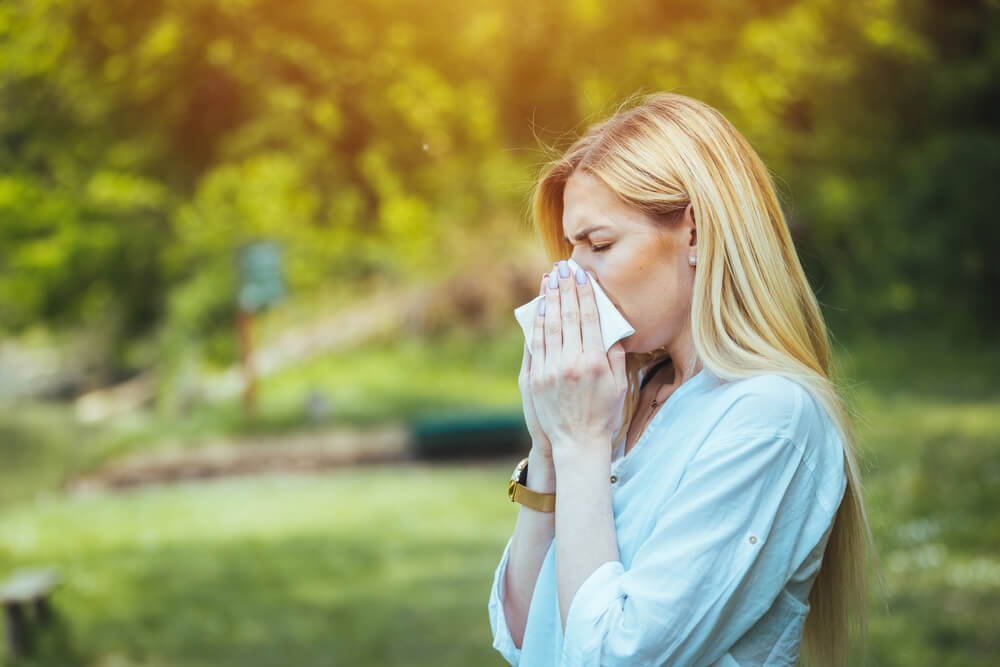
Human Health Risks Associated with Healthcare Waste
Healthcare waste poses various human health risks due to the presence of infectious agents, hazardous chemicals, and radioactive materials. These risks include:
Infection
Healthcare waste can carry various pathogens, including viruses, bacteria, and other infectious agents. If not managed and disposed of properly, healthcare waste can cause the spread of infections and diseases to healthcare workers, patients, and the public.
Injury
Healthcare waste, such as sharps waste, can cause injuries, which can lead to exposure to infectious agents, blood-borne pathogens, and other hazardous substances.
Toxic Exposure
Healthcare waste can contain hazardous chemicals, such as disinfectants, pharmaceuticals, and solvents, which can pose a risk of harmful exposure to healthcare workers and the public.

Environmental Risks Associated with Healthcare Waste
Improper disposal of healthcare waste can lead to soil and water contamination, air pollution, and the release of hazardous substances that can pose risks to human and environmental health.
Soil Contamination
Healthcare waste can contaminate the soil, which can cause harm to plants and animals that live in the area.
Water Pollution
Improper disposal of healthcare waste can lead to water pollution, contaminating water sources and posing a threat to the environment.
Air Pollution
Healthcare waste can emit hazardous gases and particles into the air, which can cause respiratory problems and other health issues.
Climate Change
Healthcare waste can contribute to greenhouse gas emissions, affecting climate change and significantly impacting the environment.

What are the Different Methods of Health Care Waste Management?
Healthcare waste management involves various methods to safely and efficiently manage and dispose of different types of healthcare waste. The methods of healthcare waste management can be classified into several categories:
Segregation
This involves separating healthcare waste into categories based on the type and potential risk. It ensures that every kind of waste is managed and disposed of properly.
Storage
Proper storage of healthcare waste is essential to prevent contamination and the spread of diseases. Healthcare waste should be stored in designated areas that are secure and have appropriate labelling and signage.
Recycling
Certain types of healthcare waste, such as plastics, paper, and cardboard, can be recycled, reducing the amount of waste generated and minimising the environmental impact.
Disposal
Healthcare waste that cannot be recycled or treated must be disposed of safely. This can be done through landfilling or deep burial, but it should only be done as a last resort and in compliance with local regulations.
Transportation
Proper transportation of healthcare waste is crucial to prevent contamination and ensure public safety and the environment. Healthcare waste should be transported in leak-proof and sturdy labelled and secured containers.

Healthcare Waste and COVID-19
During the COVID-19 pandemic, healthcare facilities produce a lot of waste, such as gloves, masks, and equipment that can spread the virus. It’s important to handle and dispose of this waste properly to protect people and the environment. Besides, healthcare facilities need to follow guidelines from organisations like the WHO and their local authorities. They must also separate, collect, store, and dispose of COVID-19-related waste correctly. This helps to reduce the risk of infection. Moreover, to make sure everything is done safely and efficiently, healthcare facilities need the right resources, equipment, and trained staff.Actions Taken by WHO for Healthcare Waste Management
The World Health Organization (WHO) has taken several actions to address the issue of healthcare waste. Some of these actions include:Development of Guidelines and Recommendations
These guidelines cover various aspects of healthcare waste management. It includes waste segregation, collection, storage, transportation, treatment, and disposal.Technical Support and Training
This provides technical support and training to countries to improve their healthcare waste management practices. Also, this includes guiding the establishment of healthcare waste management systems and developing waste management policies and strategies. Further, it helps in implementing best practices for healthcare waste management.Advocacy and Awareness Campaigns
This conducts advocacy and awareness campaigns to promote proper healthcare waste management practices. These campaigns aim to raise awareness about the health and environmental risks associated with improper healthcare waste management and to encourage the adoption of best practices for healthcare waste management.Collaboration with other Organisations
WHO collaborates with other international organisations and agencies to address the issue of healthcare waste. For example, WHO works closely with the United Nations Environment Programme (UNEP) and the International Atomic Energy Agency (IAEA). Together, they develop and promote sustainable healthcare waste management practices.Healthcare Waste in the UK
Healthcare waste is categorised into infectious, pharmaceutical, chemical, and general waste by the UK Department of Health. Hence, to prevent harm to the environment and public health, each category requires specific handling and disposal methods. Examples of healthcare waste include used needles and syringes, contaminated gloves, dressings, and other medical equipment. The UK has regulations in place to ensure the safe management and disposal of healthcare waste. Additionally, the Duty of Care regulations requires healthcare providers to handle and dispose of waste correctly. Also, the Hazardous Waste Regulations provide guidelines for the handling and disposal of hazardous waste. Moreover, these regulations are essential to protect public health and the environment.Identification of Clinical Wastes
Identifying clinical wastes is crucial for the safe and proper management of healthcare waste. Clinical wastes can include used needles and syringes, expired medications, laboratory specimens, blood-soaked materials, human tissues and organs, and animal waste used for medical research.
To correctly identify clinical waste, healthcare facilities must ensure that all waste generated from medical procedures is separated from other types of waste. In addition, healthcare workers must receive training on adequately identifying and segregating clinical waste to avoid potential health hazards.
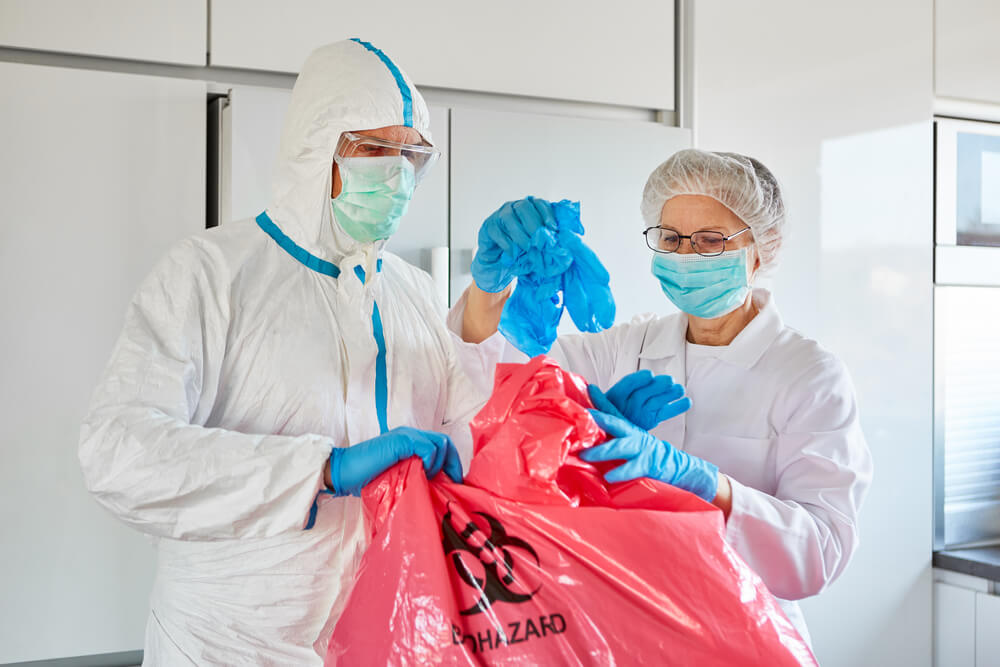
Health Care Waste Management (HCWM)
Health Care Waste Management (HCWM) involves collecting, treating, and disposing of various types of healthcare waste. Taking care of healthcare waste is important. It means properly getting rid of different kinds of waste produced by healthcare places.
Besides, the point of healthcare waste management is to keep people and the environment safe from harmful healthcare waste. In fact, if healthcare waste is not disposed of correctly, it can spread diseases. Finally, it will put people at risk if they come into contact with it.
Moreover, to make sure healthcare waste is safely taken care of, healthcare facilities need to sort waste into different categories. In addition, these categories include infectious waste, hazardous waste, pharmaceutical waste, radioactive waste, and general waste.
Furthermore, different types of waste need to be handled in specific ways. For instance, infectious waste needs to be autoclaved or incinerated, while hazardous waste needs to be treated chemically or incinerated.
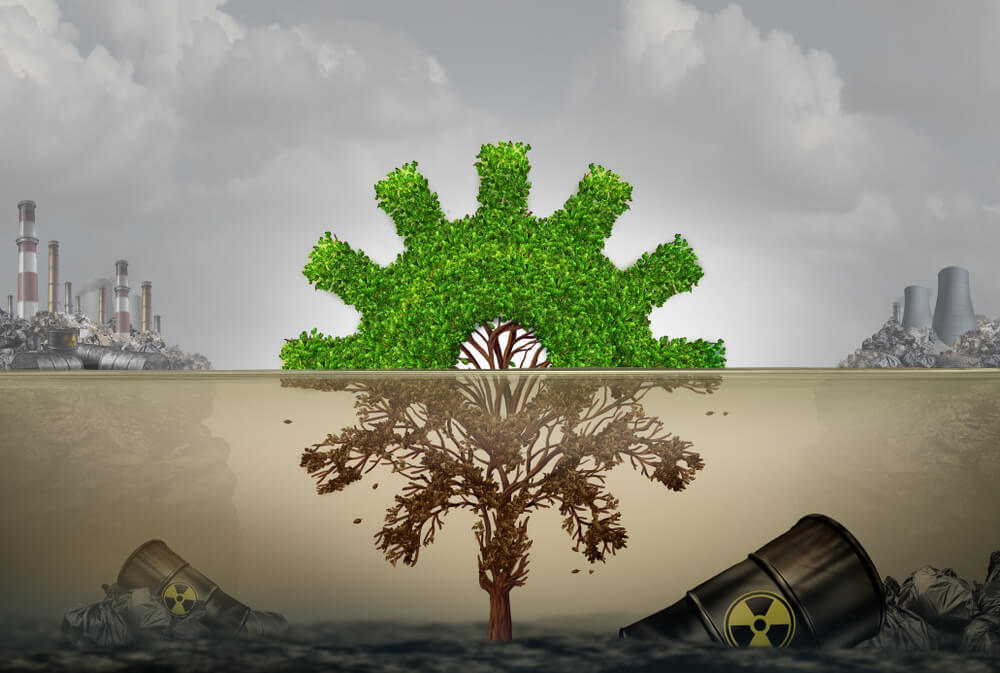
Risks Associated with Health Care Waste Management
Improper management of healthcare waste can pose significant risks to public health and the environment. These risks include:
Infections
Different types of healthcare waste may contain infectious. For example, bacteria, viruses, and parasites. In fact, they can cause diseases to healthcare workers, waste handlers, and the public.
Occupational Hazards
Workers handling and disposing of healthcare waste may be exposed to needle-stick injuries, chemical exposures, and physical injuries.
Environmental Pollution
Healthcare waste may contain hazardous chemicals and substances. Besides, they can pollute the environment if not correctly disposed of. Further, this can lead to soil and water contamination, air pollution, and ecosystem damage.
Public Health Risks
Improper healthcare waste management can release hazardous substances into the environment. Moreover, it can pose risks to public health, especially in communities near waste management facilities.
Legal and Financial Risks
Last but not least, improper healthcare waste management can result in legal and financial consequences. It includes fines, penalties, and reputational damage to healthcare facilities.

Summary
In summary, proper disposal of different types of healthcare waste is crucial to ensure public health and safety. The eight types of healthcare waste discussed in this blog require specific disposal methods to prevent harm to the environment and people. Besides, it is essential to follow proper waste management protocols to prevent the spread of infections and reduce the risk of exposure to hazardous materials.
Moreover, healthcare facilities should train their staff on proper waste management and disposal techniques to ensure that waste is disposed of safely and efficiently. Let us all do our part in responsibly managing and disposing of healthcare waste to protect public health and create a cleaner and safer environment.
FAQ
What are the Two Types of Healthcare Waste?
Healthcare waste is solid or liquid waste arising from healthcare.
What are the 3 Golden Rules of Waste Management?
The three R’s – reduce, reuse and recycle. They all help to cut down on the amount of waste we throw away. Also, they conserve natural resources, rubbish yards and energy.
What are the Types of Biomedical Waste?
Biomedical waste is any waste induced during the treatment of humans or animals. Also, biomedical waste can be broadly categorised into clinical and non-clinical waste.
What is Non-clinical Waste?
Non-clinical waste is generated in other settings, such as households, offices, and research institutions.
Is Domestic Waste Healthcare Waste?
Domestic waste is not the same as healthcare waste. Domestic waste refers to household waste, while healthcare waste is waste generated by healthcare facilities. For example hospitals, clinics, and laboratories. Additionally, healthcare waste can include medical equipment, sharps, and hazardous chemicals requiring specialised handling and disposal.
Which Document refers to the Safe Management of Healthcare Waste?
The World Health Organization (WHO) has developed guidelines for the safe management of healthcare waste. These guidelines are outlined in the document “Safe Management of Wastes from Healthcare Activities.” Also, this document guides the secure handling and disposal of healthcare waste. Moreover, it outlines the responsibilities of healthcare facilities and staff in managing waste.
Learn More
- Available Courses
- Animal care10
- Design28
- Training9
- Accounting & Finance Primary50
- Teaching & Academics Primary37
- Teaching23
- Quality Licence Scheme Endorsed181
- Law10
- IT & Software229
- Job Ready Programme52
- Charity & Non-Profit Courses28
- HR & Leadership4
- Administration & Office Skills4
- Mandatory Training36
- Regulated Courses4
- AI & Data Literacy24
- Health and Social Care290
- Personal Development1630
- Food Hygiene119
- Safeguarding80
- Employability288
- First Aid73
- Business Skills295
- Management425
- Child Psychology40
- Health and Safety533
- Hospitality28
- Electronics31
- Construction63
- Career Bundles201
- Marketing39
- Healthcare172

 Food Hygiene
Food Hygiene Health & Safety
Health & Safety Safeguarding
Safeguarding First Aid
First Aid Business Skills
Business Skills Personal Development
Personal Development



